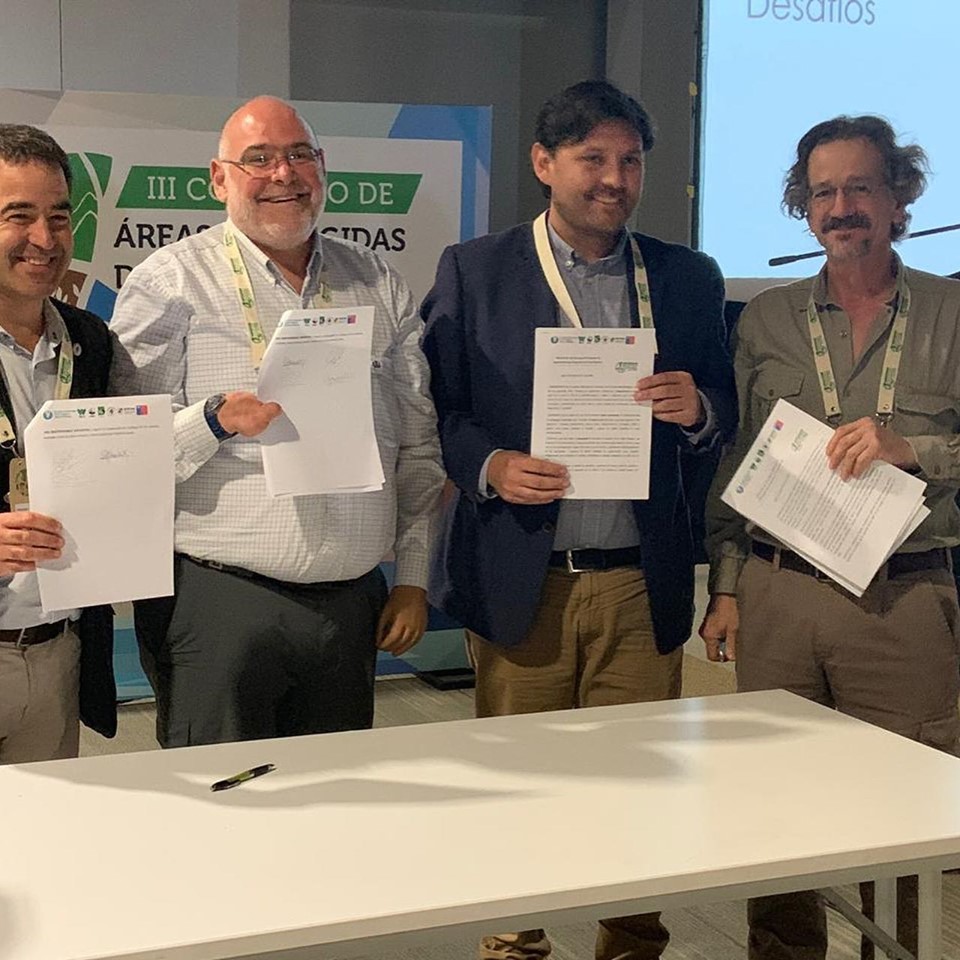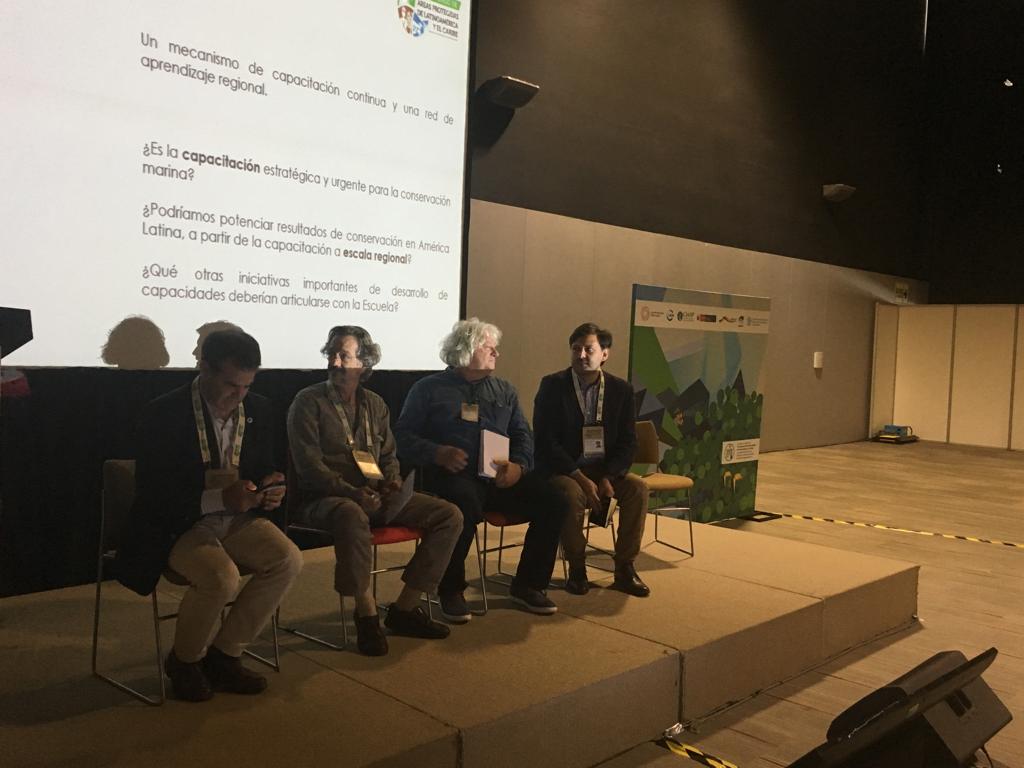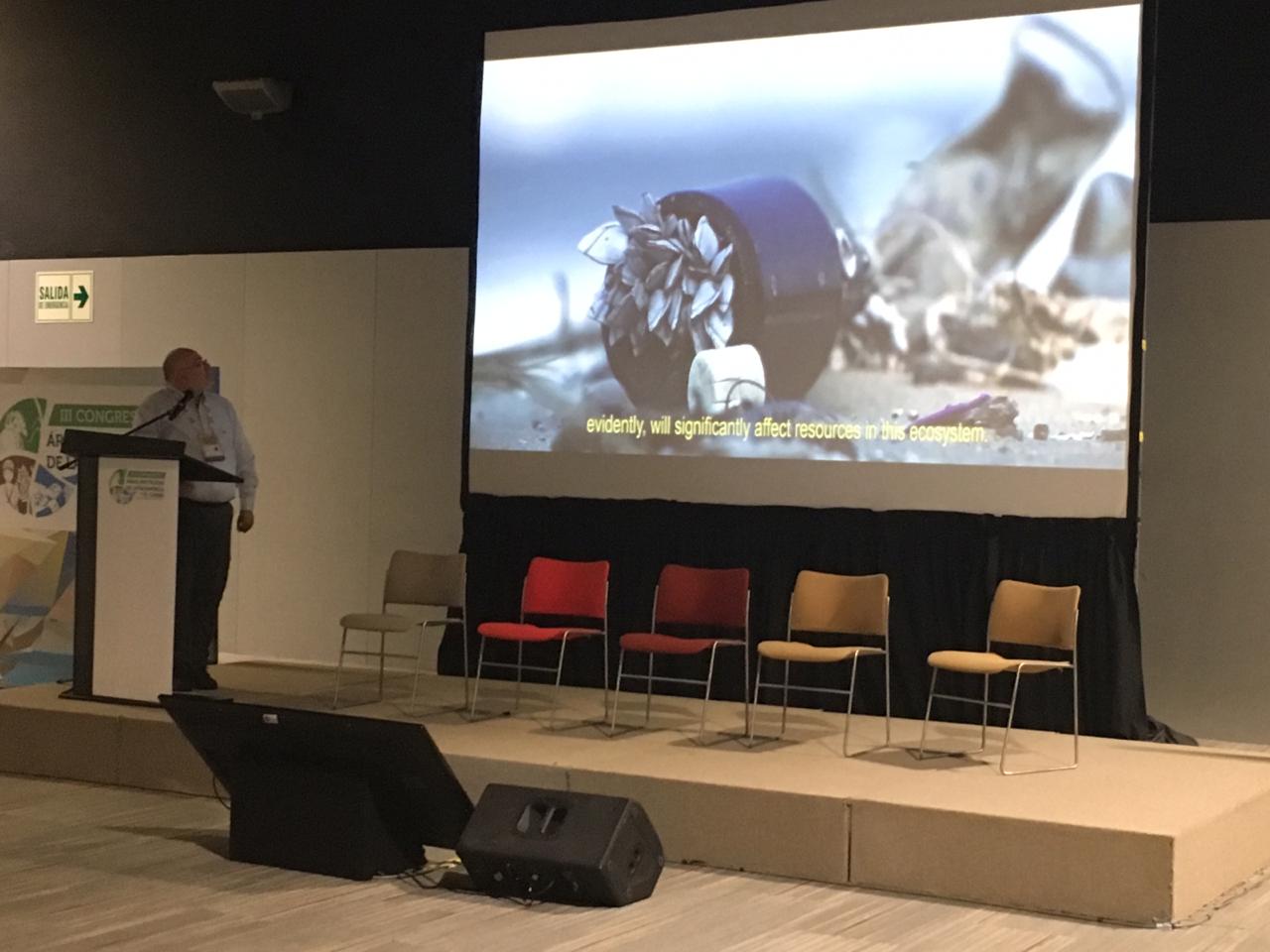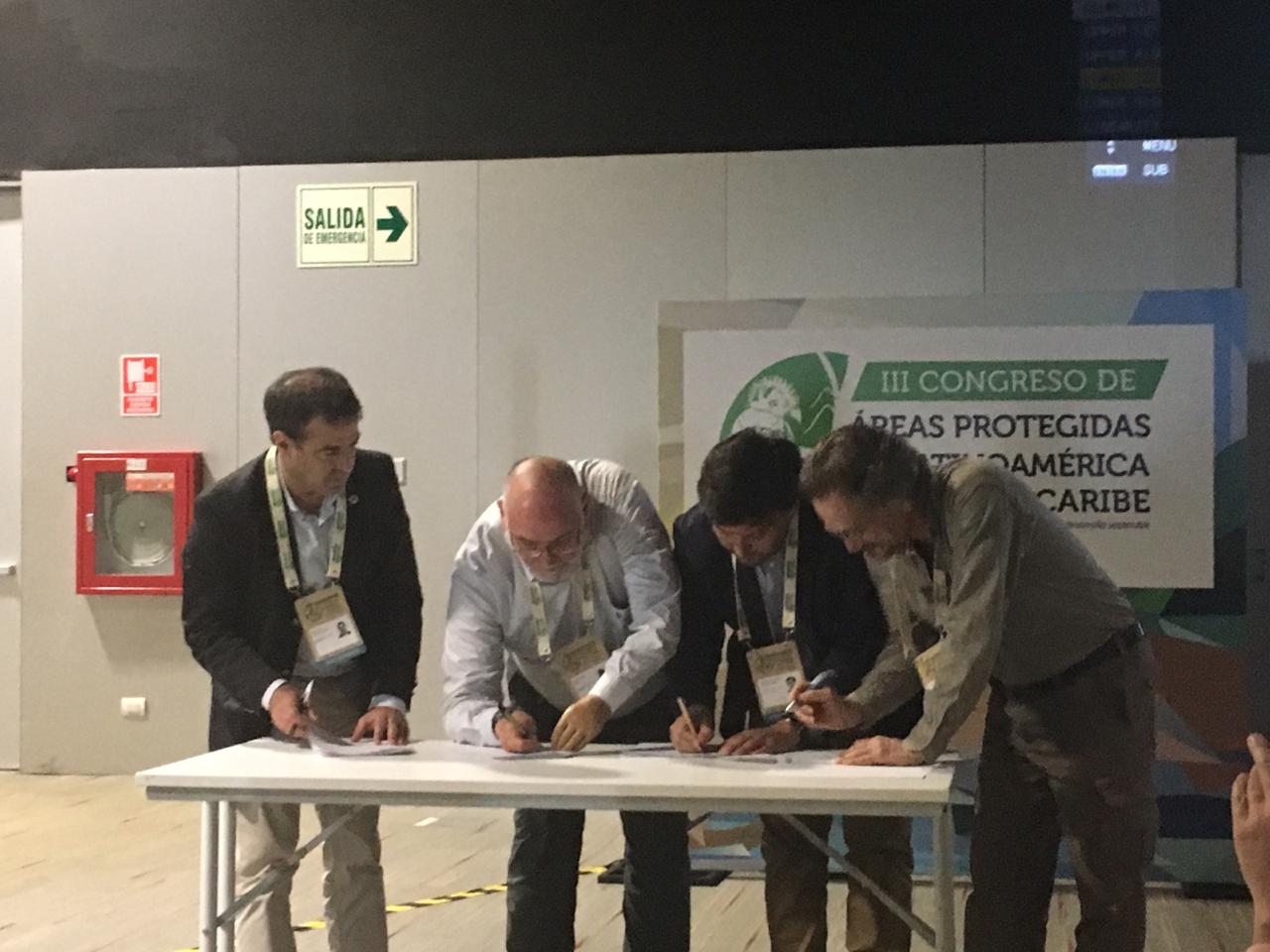- Government members from the three countries and the civil society signed a letter of intent to continue working integrally in strengthening the capacities of those responsible for the management of Marine Protected Areas (MPAs).
- The declaration aims at the continuity of the networking and the regional approach proposed within the framework of the School for the Management of MPAs in the Southern Cone, and proposes the same approach in all Latin America.
- This commitment was reflected at the end of an event organized by the Forum for the Conservation of the Patagonian Sea, Argentina Wildlife Foundation, WCS Chile, WWF Chile, the National Parks Administration of Argentina, the Ministry of Environment of Chile and the Ministry of Housing, Land Planning and Environment of Uruguay, within the framework of the III Congress of Protected Areas of Latin America and the Caribbean (IIICAPLAC) held from October 14 to 17 in Lima, Peru.
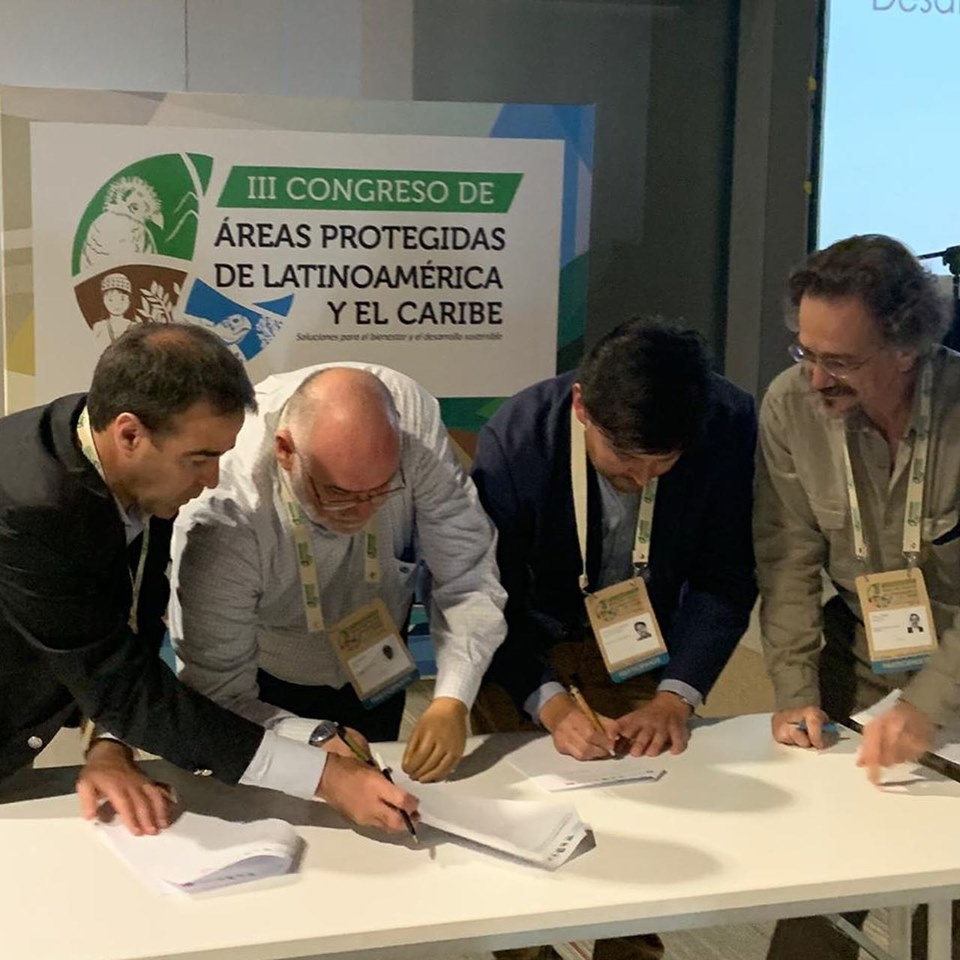
“We recognize the urgency of training teams for the effective management of Marine Protected Areas (MPAs), in order to achieve results regarding biodiversity conservation and sustainable development,” says the document signed by the representatives of Argentina, Chile and Uruguay governments and by members of the Forum for the Conservation of the Patagonian Sea, during one of the parallel events organized within the framework of the IIICAPLAC.
During the meeting, the School for the Management of MPA in the Southern Cone was presented, which is a taste case of the regional approach and the collaborative work for the development of skills, driven by the civil society and strengthened by the support of the three governments. After two years, the experience that was born from the need to train human resources identified in the three countries resulted in a productive example of articulation that impacted on 15 MPAs, which included integrated planning and management among areas of different jurisdictions, either provinces or nearby countries.
Based on the experience of the Southern Cone, an international panel discussed which capacities would be necessary and how to advance in their joint development, in order to achieve a good implementation of MPAs in Latin America. Emiliano Ezcurra, Vicepresident of the National Parks Administration of Argentina, Felipe Paredes, member of the Department of Protected Areas of the Ministry of Environment of Chile, Guillermo Scarlato, Director of the National System of Protected Areas of the Ministry of Housing, Land Planning and Environment of Uruguay, and Philippe Le Niliot, Deputy Director of Parc Naturel Marin d’Iroise of the French Biodiversity Agency.
In line with the letter of intent signed at the close of the event, the main conclusions of the panel emphasized that:
• Training of MPA managers is an urgent and vital need that must continue in order to support the process of establishing effective MPAs, and achieve the conservation of the marine environment.
• The institutions and personnel in charge of AMPs in the three countries are going through a learning process. The School promoted and consolidated the generation of a regional network of cooperation and integration, which favors horizontal as well as cross-learning, beyond the formal courses.
The document concludes: “We will continue to work and articulate the capacities of each country so that the SCHOOL project evolves towards a mechanism of continuous training that meets the current and future need for teams trained in the effective management of MPAs.”
